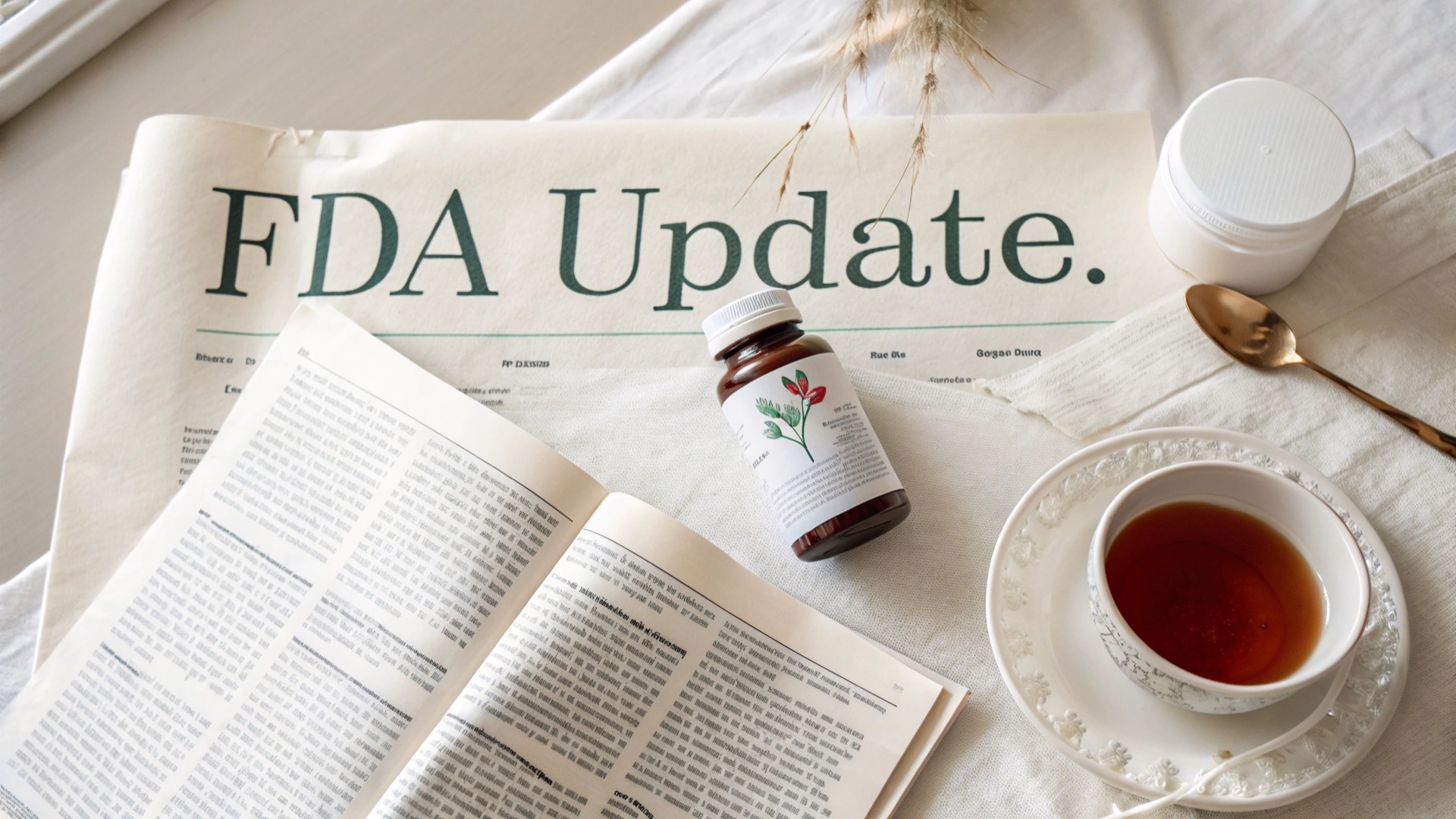Key takeaways
- Morning is the best time to take NMN, as it aligns with the body’s natural NAD⁺ production cycle and circadian rhythms, enhancing metabolic and cellular benefits.
- Studies show that early-day dosing may support optimal activation of NAD-dependent enzymes, such as SIRT1, which influence DNA repair and energy metabolism.
- To maximize absorption, NMN should be taken on an empty stomach, ideally in sublingual or capsule form, as part of a consistent daily routine.
Overview
Nicotinamide mononucleotide (NMN) is rapidly emerging as one of the most popular supplements for supporting healthy aging, counteracting the natural decline of NAD⁺ levels associated with aging, optimizing NAD⁺ levels, and enhancing metabolic function.
NAD⁺ (nicotinamide adenine dinucleotide) is a crucial molecule involved in cellular energy production and repair mechanisms.
NMN also activates longevity pathways, which are crucial for cellular repair and a healthy lifespan. However, one question often arises among NMN enthusiasts and users alike: Is there an optimal time to take NMN for maximum benefit? Should you take it in the morning or at night?
This guide examines available research, clinical practices, and biological insights to provide an effective answer to this question.
If you’re curious about how timing might impact NMN’s efficacy, you’re in the right place. We’ll also provide practical tips and actionable recommendations for taking NMN.
Why might timing matter for NMN supplements?
Timing plays a significant role in the efficacy of many supplements, and NMN is no exception. The effectiveness of NMN is closely linked to its role in supporting NAD⁺ metabolism. The timing of NMN intake can influence the body’s natural rhythms and overall effectiveness. NAD⁺ levels naturally follow a diurnal rhythm (meaning they vary throughout the day), which may offer clues about the ideal timing of NMN supplementation.
- Daily energy demands: NAD⁺ plays a crucial role in energy metabolism, particularly in the production of ATP. Since energy demands are generally higher during the day due to physical and cognitive activities, it makes sense that NAD⁺ utilization peaks at this time.
- Circadian influence: Research shows that NAD⁺ metabolism aligns with the body’s circadian rhythm. Enzymes involved in NAD⁺ production and breakdown, such as sirtuins, also exhibit time-dependent activity patterns. Aligning NMN intake with the body’s natural rhythms can help optimize cellular processes, supporting energy production and repair.
- Metabolic support: Administering NMN in the morning may better support these naturally higher daytime metabolic needs and match the critical periods for cellular repair and energy production.
Given NAD⁺’s critical roles, these variations suggest that timing matters because it can impact how well NMN supports the body’s energy and repair needs. Timing issues for NMN supplementation can be addressed by taking it in sync with your body’s natural rhythms, which can maximize its benefits for cellular processes and overall health.
What clinical trials did – Morning dosing is standard
When evaluating the best time to take NMN, it’s helpful to consider how clinical researchers typically administer the supplement in human studies.
Most clinical trials instruct participants to take NMN in the morning, often with or after breakfast. This approach aligns with the body’s natural circadian rhythms and aims to support healthy NAD+ production during the day.
Morning dosing also helps mitigate the risk of NMN interfering with sleep. Taking NMN later in the day may lead to sleep disturbances in some individuals due to its energizing effects.
Researchers also monitor the body’s response to NMN timing to ensure optimal outcomes for participants.
Examples of trials using morning dosing
A majority of clinical trials investigating NMN have employed morning dosing protocols, with participants typically taking the supplement after breakfast. Here are some examples from recent research:
- A study involving 11 volunteers administered 250 mg/day of NMN in the morning for 12 weeks, resulting in significant increases in plasma NAD⁺ levels and insulin sensitivity without adverse effects. This amount falls within the recommended dose range for NMN supplementation, as supported by current guidelines on NMN dosage.
- Similarly, a 12-week trial on older adults who took 250 mg of NMN after breakfast found enhanced NAD⁺ metabolite levels and improved sleep quality. These studies contribute to identifying the optimal dosage and help inform both recommended dose and NMN dosage recommendations for different populations.
Why did researchers choose morning?
The rationale for morning administration in trials is tied to the diurnal rhythm of NAD⁺ production and energy demand. Consuming NMN early in the day aligns with the natural metabolic peak, potentially enhancing its effectiveness. Morning dosing also helps mitigate the risk of NMN interfering with sleep, as its energizing effects could potentially disrupt nighttime rest.
Are there studies comparing morning vs night?
It’s worth noting that there are currently no published clinical studies directly comparing the outcomes of taking NMN in the morning versus the evening. However, indirect evidence suggests that morning dosing may be the safer and more effective choice. For example:
- Studies on nicotinamide metabolism reveal a drop in the production of key NAD⁺ byproducts (like N1-methyl-2-pyridone-5-carboxamide) later in the evening and at night. This indicates significantly reduced NAD⁺ use during rest periods, which may limit the benefits of nighttime NMN supplementation.
- Users have reported fewer disruptions to sleep and overall better energy regulation with morning use, aligning with the observed biological rhythm of NAD⁺ peaks during the daytime.
Though promising, dedicated comparative studies are needed to confirm these trends definitively.
Food interaction and NMN
When it comes to NMN supplements, one of the most common questions is whether to take them on an empty stomach or with food. The answer can depend on your personal preferences and digestive health, but some general guidelines can help you maximize the benefits of your NMN supplementation.
Taking NMN on an empty stomach may enhance absorption, allowing your body to utilize the supplement more efficiently for energy production and cellular health. This is because, without the presence of a large meal, your digestive system can prioritize the absorption of NMN, helping to support energy levels and cellular repair right from the start of your day. Many users find that taking NMN first thing in the morning, before breakfast, helps them feel a noticeable boost in energy and focus.
However, food interaction with NMN is generally minimal, so you can also take NMN supplements with a light meal or snack if you have a sensitive digestive system. Pairing NMN with healthy fats, such as a drizzle of olive oil, may further improve absorption, as healthy fats can facilitate the transport of NMN into your cells. This powerful combination can help maximize the benefits of NMN for supporting energy metabolism and overall cellular health.
On the other hand, taking NMN with a large or heavy meal might slow down its absorption, as your digestive system will be busy breaking down other nutrients. For optimal results, consider taking NMN in the morning on an empty stomach or with a small, nutrient-rich snack that includes healthy fats.
If you experience any digestive discomfort when taking NMN on an empty stomach, simply adjust your routine by taking it with a light meal. The key is to listen to your body and tailor your NMN intake to your individual needs and health goals. As always, consulting with a healthcare provider can help you determine the best approach for your unique situation, ensuring you get the full benefits of NMN supplementation.
By aligning your NMN intake with your body’s natural rhythms and digestive preferences, you can support energy production, cellular health, and healthy aging throughout the day.
Individual factors: Personalizing your NMN timing
The optimal time to take NMN supplements varies from person to person. Personal factors, such as age, lifestyle, health goals, and daily routine, can all influence when NMN supplementation will be most effective for you.
For many young people, taking NMN in the morning can provide a welcome boost in energy production, helping to kickstart the day and support focus and productivity. Morning doses are also recommended by experts, such as David Sinclair, who emphasizes the importance of aligning NMN intake with the body’s natural circadian rhythms for optimal results.
Older adults, on the other hand, may find that evening doses of NMN better support sleep quality and cellular repair, as the body’s need for DNA repair and cellular health increases with age. Individuals with metabolic disorders may benefit from timing their NMN supplementation to help regulate energy metabolism and glucose levels. Those who engage in regular exercise may want to adjust their NMN timing to support muscle recovery and maintain a steady energy supply.
Your body’s natural rhythms, including circadian rhythms, play a crucial role in how your body responds to NMN. Taking NMN in sync with these rhythms can enhance its benefits for energy, metabolism, and overall health. Starting NMN supplementation with a low recommended dosage, typically 250-500mg per day, and gradually increasing it allows your body to adjust, helping you monitor how you respond.
Combining NMN with other supplements, such as resveratrol, and maintaining a healthy lifestyle with regular exercise and a balanced diet can further amplify the benefits of NMN for DNA repair, cellular repair, and healthy aging.
Ultimately, the optimal time to take NMN and the best dosage will depend on your individual needs, age, and health goals. Consulting with a healthcare provider is the best way to personalize your NMN supplementation plan, ensuring you achieve the most significant benefit while supporting your body’s unique requirements. By paying attention to your body’s response and making adjustments as needed, you can harness the full potential of NMN for energy, longevity, and overall well-being.
Practical tips for taking NMN
Taking NMN is simple, but a few practical considerations can significantly enhance its absorption and efficacy.
- Stick to a consistent schedule
For optimal benefits, take NMN at the same time every day, ideally after breakfast. Consistency supports the alignment of supplementation with biological rhythms. Taking NMN supplements regularly is crucial for maintaining steady NMN absorption and achieving optimal results.
- Pair it with meals
Post-prandial (after eating) NMN intake may support better absorption and stability in the bloodstream. Using sublingual NMN or NMN powder can lead to faster absorption compared to capsule form, especially when taken on an empty stomach.
When choosing the best form of NMN, both powder and capsule form are popular options. Powder and sublingual NMN are considered the most effective forms for rapid absorption, while the capsule form offers convenience and is easy to incorporate into daily routines.
- Follow recommended dosages
Most clinical studies have successfully used doses of 250–300 mg/day. If you’re starting NMN for the first time, begin with the lowest effective dose and increase gradually under medical guidance. The amount of NMN you need can depend on various factors, including age, weight, and health conditions. Higher doses may be considered for specific health conditions but should only be used under the guidance of a medical professional.
- Consult a Healthcare Provider
While NMN is generally well-tolerated, individual responses may vary. Always consult a healthcare professional before adding NMN to your supplement routine, particularly if you have existing medical conditions or are pregnant/nursing. Your health conditions may influence the appropriate dosage, and higher doses might be necessary in some cases.
- Store properly
Keep NMN supplements in a cool, dry place to ensure maximum potency over time.
- Consider supplement combinations
Some users combine NMN with other supplements, such as TMG, to support methyl groups and healthy methylation processes. Inflammation control is another potential benefit of NMN supplementation, as it may help support mitochondrial health and reduce inflammation-related issues.
Bottom line
Based on current evidence, morning dosing after breakfast is the best time to take NMN. This practice aligns well with NAD⁺’s natural circadian rhythm, supporting its role in energy production and cellular repair during the day. Consistent NMN supplementation may provide long term benefits, such as improved cellular repair and healthy aging, which can become more noticeable over weeks to months.
While there are not enough studies comparing morning versus night, the overwhelming consensus in clinical research supports starting your day with NMN. For optimal results, combine NMN with a balanced diet, a consistent routine, and professional guidance. NMN helps support cellular repair and energy production in the body, contributing to improved immune function and increased resilience against age-related decline.
By syncing NMN supplementation with your biology, you can unlock its full potential to support energy, healthy aging, and overall well-being. NMN works by boosting NAD+ levels in the body, enhancing mitochondrial health, and promoting long-term healthy aging.
Frequently asked questions (FAQs)
1. Can I take NMN at night instead of in the morning?
While NMN is considered safe at any time, morning dosing is generally recommended to align with your body’s natural NAD⁺ rhythms and avoid any potential energy disruptions during sleep.
2. How long does NMN take to work?
Effects may vary, but clinical trials show measurable increases in NAD⁺ levels and related benefits within 4–12 weeks of consistent use. Some users also report improvements in brain fog and cognitive clarity as NAD⁺ levels increase.
3. Can I combine NMN with other supplements?
Yes, NMN can often be paired with supplements like resveratrol or vitamin D. Resveratrol works synergistically with NMN to support longevity pathways, enhance brain function, and promote healthy aging. However, consult your healthcare provider before starting any new regimen.
References
- Yamane, M. et al. (2023). Safety evaluation of NMN in healthy adults: A randomized, placebo-controlled, double-blind study. Clinical Nutrition ESPEN.
- Morifuji, M. et al. (2024). Ingestion of β-NMN increased blood NAD levels and improved sleep quality in older adults. GeroScience, 46, 4671–4688.
- Okamoto, H. et al. (2003). Diurnal variations in human urinary excretion of nicotinamide catabolites: effects of stress on metabolism. American Journal of Clinical Nutrition, 77(2), 406–410.
- Mills, K. F. et al. (2016). Long-term administration of NMN mitigates age-associated physiological decline in mice. Cell Metabolism, 24(6), 795–806.








